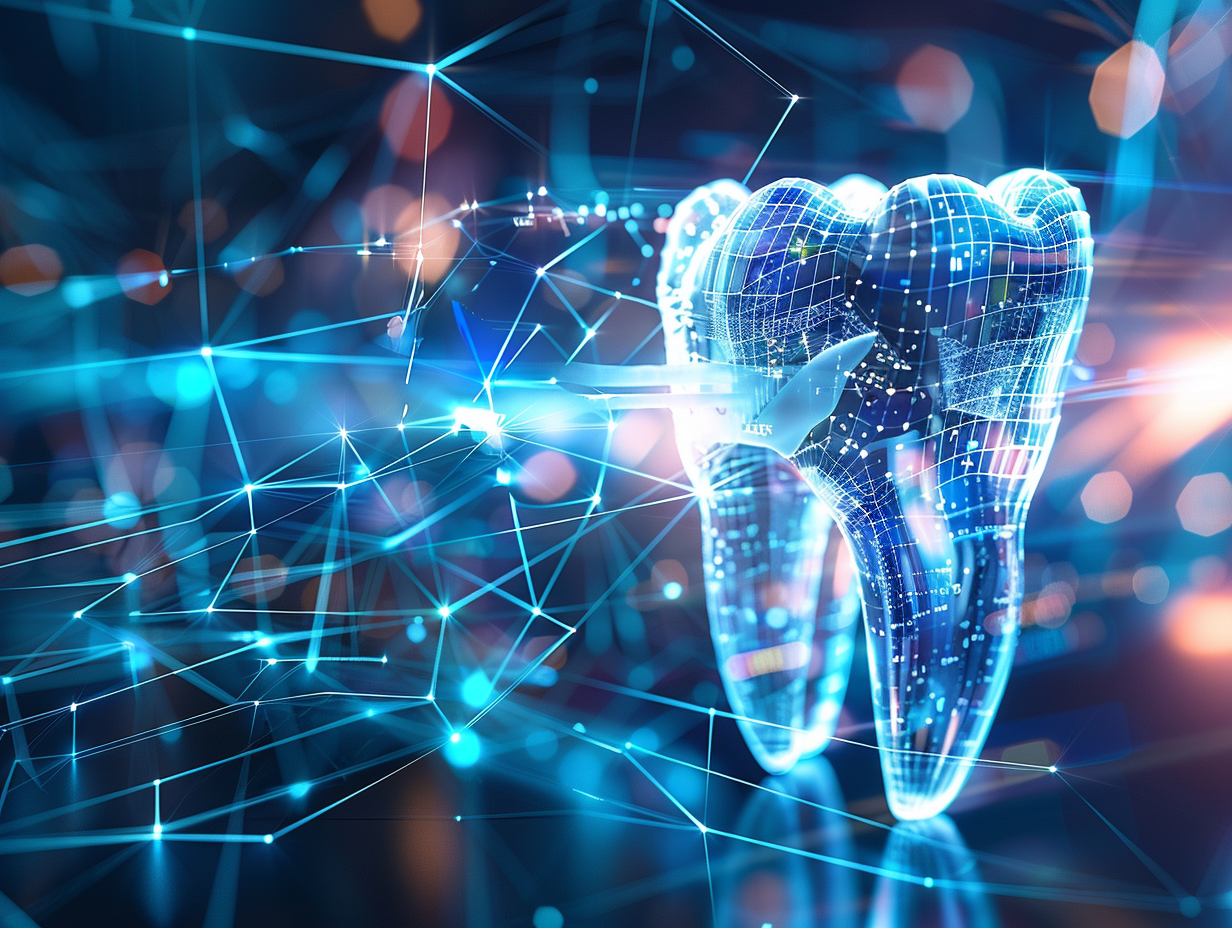Artificial intelligence (AI) is playing an increasingly significant role in dentistry, bringing forth many innovations that enhance the quality of patient care. In recent months, there have been many interesting topics regarding AI in dentistry, which have been widely discussed on professional platforms. Here is a detailed look at how AI is changing the face of dentistry.
Improving Diagnostics
AI significantly improves the accuracy of dental diagnostics. Traditional diagnostic methods, based on manual review of X-ray images, are time-consuming and prone to human error. AI algorithms, such as those utilizing machine learning, can analyze X-ray images and scans with exceptional precision, identifying early stages of diseases such as cavities, gum diseases, or oral cancer. As a result, early detection and treatment of these conditions are possible, greatly improving patient outcomes.
Treatment Planning and Personalized Care
AI is also invaluable in treatment planning. By analyzing large amounts of patient data, AI can create personalized treatment plans tailored to individual patient needs. For example, in orthodontics, AI can predict tooth movements and create precise treatment plans, allowing for the best possible outcomes. A personalized approach not only increases treatment effectiveness but also enhances patient satisfaction.
Automating Routine Tasks
AI automates many routine administrative tasks in dental offices. AI-based management systems can automatically schedule appointments, manage medical documentation, and input patient data. This significantly reduces administrative burden, allowing dentists and medical staff to focus on patient care. Additionally, AI-powered chatbots can respond to patient inquiries, providing instant answers and increasing communication efficiency.
Applications in Imaging Diagnostics
AI also finds applications in imaging diagnostics, transforming traditional methods into more advanced image analysis techniques. AI algorithms can recognize and interpret complex patterns in X-ray images, aiding in the identification of problems that may be invisible to the human eye. For example, AI can detect subtle changes in bone structure, allowing for early detection of osteoporosis or other bone diseases.
Challenges and Ethical Issues
Despite many benefits, integrating AI in dentistry poses certain challenges. A key issue is patient data security. Storing sensitive medical information in AI-based systems increases the risk of cyberattacks. Therefore, advanced data protection measures are necessary to ensure patient safety and privacy. Additionally, reliance on AI technology may lead to the erosion of some practical skills among dentists, raising questions about responsibility in case of diagnostic errors.
The Future of AI in Dentistry
The future of AI in dentistry looks promising. Technological advancements are expected to further improve diagnostic tools and treatment planning. Interdisciplinary integration of AI in oral health and overall patient health is predicted to evolve, offering a more comprehensive approach to healthcare. Research on the accessibility and affordability of AI tools may contribute to democratizing advanced dental care, making it more accessible to a wider population.
In summary, artificial intelligence has the potential to revolutionize dental practices, benefiting both patients and practitioners. From improving diagnostic accuracy to streamlining operations and personalizing patient care, AI is becoming an integral part of modern dentistry. Despite challenges related to data security and ethics, the benefits of AI application are invaluable and can lead to significant improvements in the quality, efficiency, and accessibility of dental care.

